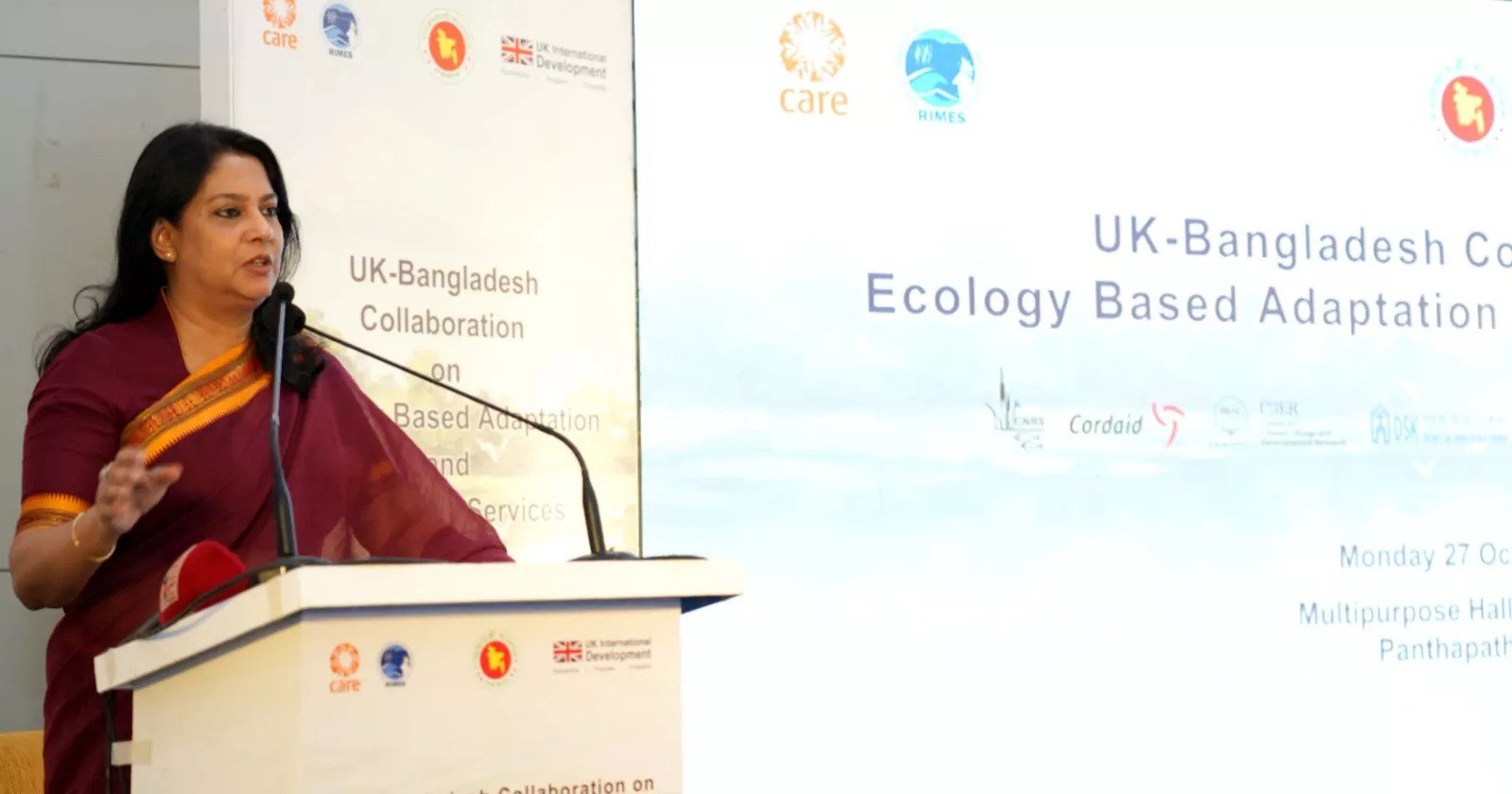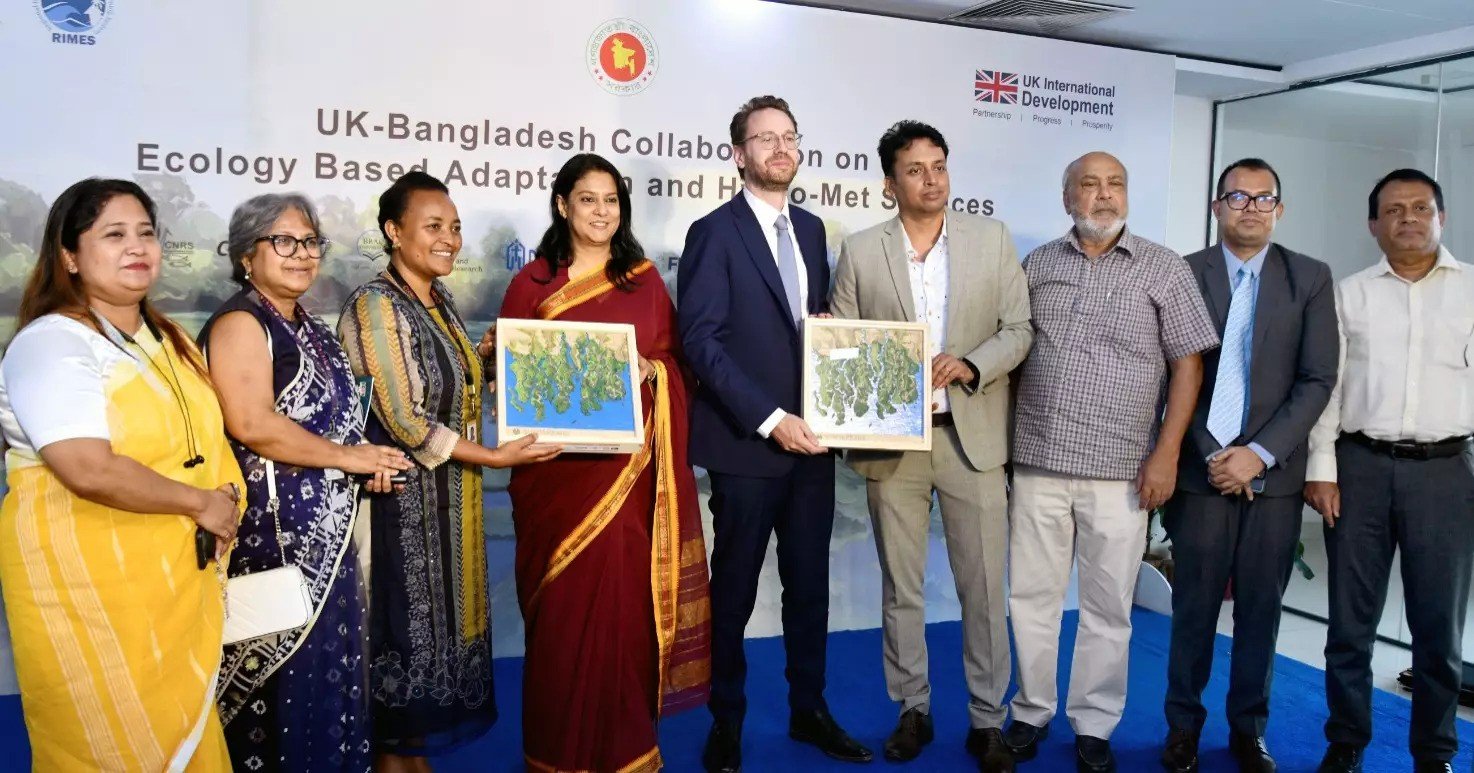
Environment Adviser Syeda Rizwana Hasan has said the EnRICH Project will strengthen flood forecasting and early warning systems in Sylhet, Sunamganj, Cumilla, and Feni from September 2025 to March 2026. Report BSS
She made the remarks on Monday while addressing a national event titled “UK-Bangladesh Collaboration on Ecology-Based Adaptation and Hydro-Met Services” at Pani Bhaban in Dhaka.
Appreciating the UK Met Office’s collaboration with RIMES, BWDB, and BMD under the new initiative, Rizwana said, “Our meteorologists often struggle to forecast sudden floods or upstream water surges accurately. Over the next six months, this partnership will enhance our analytical capacity to interpret rainfall and hydrological data more effectively.”

“The sustainability of NGO-led projects depends on establishing effective collaboration mechanisms with the government, she added.
Highlighting the importance of protecting Haor ecosystems, the adviser said, “If the Haor ecosystem collapses, our food supply will drop. Protecting Haor means protecting the country’s overall ecosystem.”
She noted that although the National Haor Master Plan has been finalised, the Haor Development Board still lacks an approved administrative structure, limiting its effectiveness.
UK-BD partnership to strengthen flood forecasting, early warning in 4 districts: Rizwana
Rizwana Hasan also informed that the government has drafted the Haor and Wetland Ordinance and prepared a protection order under the Water Act covering Hakaluki and Tanguar Haor. “Once gazetted, these areas will be managed as climate- and agriculture-friendly ecosystems,” she said.
“Haor is deeply linked with our food system — when water or electricity supply falls, food security suffers. It is our national duty to protect this ecosystem for the wellbeing of our people.”
She said Haor communities are deprived of essential services, including healthcare. “We are exploring a boat-based hospital model that can operate both during floods and in the dry season,” she added, noting that such a project from the Health Ministry could be considered for approval under the Climate Change Trust Fund.
Government officials, development partners, academia, and civil society members attended the event.
The event also showcased the achievements of the UK-funded NABAPALLAB Project in the Sundarbans Ecologically Critical Area (ECA) and announced its expansion to Hakaluki Haor, one of the largest wetlands in South Asia.
A panel discussion featuring experts from ADB, CNRS, RSF, and the Bangladesh Forest Department underscored the importance of integrating Nature-Based Solutions and Locally Led Adaptation into Bangladesh’s national climate strategies.



